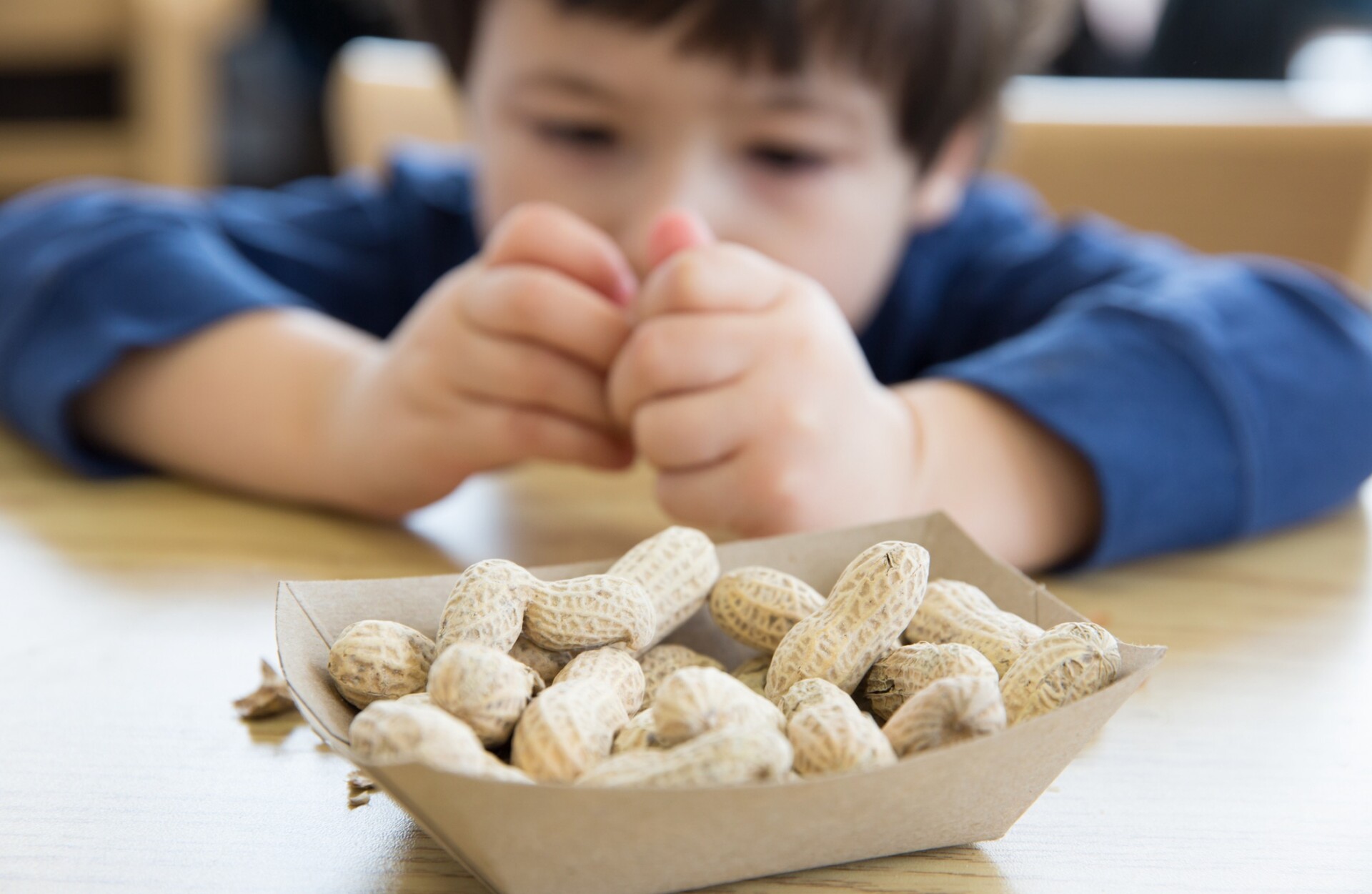Two decades ago, the advice to a newly-minted mother like me was: don’t give your child peanuts. Not just giving whole ones to infants where they’d be a choking risk — but peanuts at all, as butter or an ingredient, lest they develop an allergy.
Peanut allergies, at their most serious, can be life-threatening. They are one of the main causes of anaphylaxis, which causes lip and tongue swelling, and circulatory collapse, with a dramatic fall in blood pressure and difficulty breathing. People who know they have these types of reactions will be recommended to carry emergency doses of adrenaline, designed to be injected quickly and abort the reaction.
Deaths are mercifully rare — around 10 people die per year from food allergies in the UK — but a new study from Imperial College London signals that allergies are now relatively common. The researchers searched millions of GP records for signs that allergy was an issue for patients, and found an increase in reports from 0.4% of patients in 2008 to 1.1% in 2018. In 2018, the highest reports were in children under 5, of whom 4% had food allergies. The researchers say this rise has likely reached a plateau, but why did it occur in the first place?
Various theories have been advanced over the years. The “hygiene hypothesis” suggests that early exposure to bugs creates a protective natural immunity, which in turn reduces the risk of allergies. However, the data on which this is based is mainly observational, where people moving from low-allergy countries to high-allergy countries develop the risk of the place they are living in.
Another piece of research highlighted how Jewish children brought up in the UK had 10 times the risk of peanut allergy compared with Jewish children brought up in Israel — where peanuts are routinely in children’s diets before the age of 1. This is clearly interesting but didn’t prove cause and effect, which is why a series of studies done in the UK a decade ago are crucial to understand what might be happening.
These studies took the presumption that avoiding peanuts to avoid allergy was sensible and turned it on its head. Instead they asked whether this avoidance might actually be making things worse. So they carried out a series of randomised controlled trials — a powerful way to try and untangle cause and effect. Noting that when they did the study, peanut allergy had doubled in Western countries over the previous decade, they took 640 infants who had severe eczema or egg allergy, and who would have been at high risk to develop a peanut allergy as well. They split the children into two groups, with one group told to continue to avoid peanuts and the other recommended to eat them.
They were followed up, and 60 months later it was clear that there was a marked difference between the groups. Almost 14% of children avoiding peanuts had a reaction to them on a skin-prick sensitivity test compared to just under 2% of the children who ate them. In other words, the peanut exposure had a protective effect; worldwide, guidelines telling parents about what to feed their children were updated. Now, the NHS recommends that peanuts can be given, ground or as a paste, from six months old.
There are several lessons contained within this policy turnaround. First, where we don’t know what the best advice is, we should admit that uncertainty. It’s easy to assume that what sounds sensible actually is. It might be — but it also might not. The second is admitting that uncertainty enables us to do fair tests of interventions. This in turn can give people accurate advice and enable them to avoid harms. We can’t tell for sure from this data, but the change in policy might be arresting the previously observed rises in peanut allergy.
The third is that high-quality trials are a broader social good. The children who took part in the peanut trials had a good chance of getting the most effective advice rather than the (wrong) advice being given at the time — even though they didn’t know it yet. We should be profoundly grateful to researchers willing to question the status quo: it’s what better healthcare depends on.











Join the discussion
Join like minded readers that support our journalism by becoming a paid subscriber
To join the discussion in the comments, become a paid subscriber.
Join like minded readers that support our journalism, read unlimited articles and enjoy other subscriber-only benefits.
Subscribe